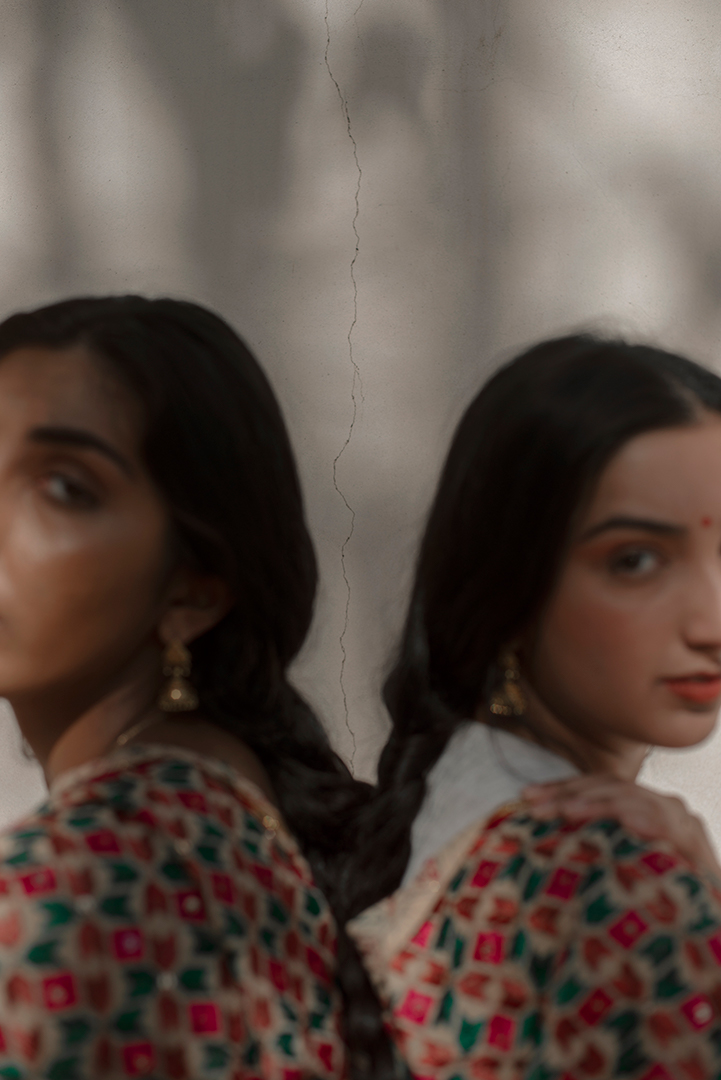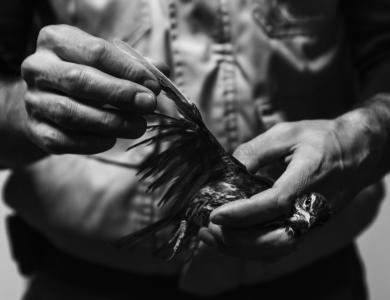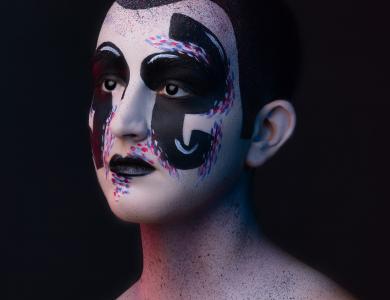
We are delighted to have Simrah Farrukh, an emerging photographer who is currently based in San Francisco, as This week’s focus. She began taking photographs when she was 10 years old, immortalising family gatherings, and she recently graduated from Loyola Marymount University, where she had her first solo exhibition titled The Brown Gaze.
Her work is inspired by her Pakistani roots, and she uses photography to create a better representation of South Asians in art and fashion. Through her practice, she aims to create a platform for South Asians, especially South Asian women, to feel more empowered. Her aesthetic stands out through the use of colourful clothes and gleaming jewelry that contrasts with a subtle pastel colour palette of pastel colours.
Her work has been published in Vice and GQ India and she has been commissioned by commercial clients such as Beats by Dr.Dre.
Over to you Simrah.
When did you first pick up a camera?
As I am from a Pakistani family, I am used to attending weddings and other celebrations. Even when I was 10 years old I would use the camera and take pictures of random things such as decorative objects or family members. However, as I was quite a short kid, they would always be taken from a low angle!
Do you remember what your first photograph was of?
The first ‘real’ photograph I took with the intent of being a photographer was around seven years ago when I picked up my dad’s old film camera. I never got that roll of film developed however, so to this day, I don’t remember what it was a picture of!
Is there a particular idea, emotion or message you are wanting to portray through your work?
I want the people I photograph to feel comforted and empowered. I endeavour to create a safe space for the subject.
You had your first exhibition last year, titled The Brown Gaze. Could you tell us more about this experience?
This show was my first solo exhibition as an artist. All the artworks displayed were photographs I had taken during the last three years of college. It took around a week to put the show together and the night of the private view felt surreal because people who have been following my work for a couple of years showed up.
What three pieces of advice do you have for those wishing to put on their first exhibition?
Firstly, it’s crucial to curate your show the way you want it to look because that’s a form of expression in itself. Secondly, do not feel too pressured to try and make every element of the exhibition perfect. If your work has landed you a solo exhibition, it means your work is good and hopefully there’ll be many more exhibitions for you to learn from and enjoy in the future. Lastly, it is essential to be organised throughout the whole process because it’s easy to lose track of the multiple tasks that inevitably come with an exhibition.
How do you manage to balance your personal and commissioned work? Do you feel this balance will change over the next few years?
I always come up with a project and then dedicate a certain date for the shoot. I think personal work is important in order to stay creative because you don’t want to lose your unique vision. Commissioned work will get you the money, but personal work is likely to give you artistic fulfillment.
What art forms outside of photography influence you?
I love looking at paintings and architecture. I think there are a lot of elements in painting and photography that overlap, therefore studying paintings holds a key place in my creative process.
You have created some short films, how do these projects feed into your photography?
It’s interesting because I see the scenes in my films as photographs. Once I have composed the set design how I want it to be, I'll then direct the model to move around. Most of the time I'll take photographs while shooting the film to create a different experience for the viewer when they enjoy the final product.
The colour treatment of your photographs is intriguing. Can you give an insight into how you process your work?
I would typically edit my photographs to enhance the feelings I want to evoke. . People have often described my work as warm, nostalgic and painterly and I think that's due to the color grading. If I am shooting digitally, then I will most likely edit on Photoshop and play around with the different tools it has to offer. If I'm shooting on film, then most often I'll allow the film type to do its part and I will only adjust the lighting. Recently, I've also been exploring color grading films and it's interesting to see how it mixes with my usual edits.
What is next for you and your photography?
I’ve just graduated college, so I’m hoping things will start to take off. I’m not confining myself to any plans, the only goal I have right now is to create more meaningful work whatever the assignment or personal project maybe.
To enjoy Simrah’s takeover on our Instagram go here


